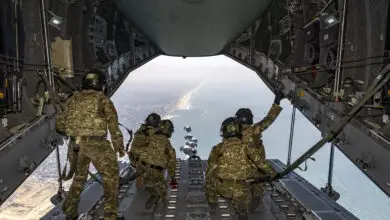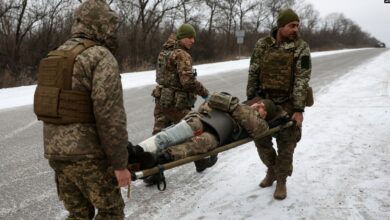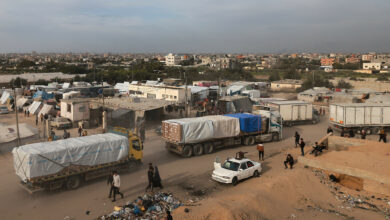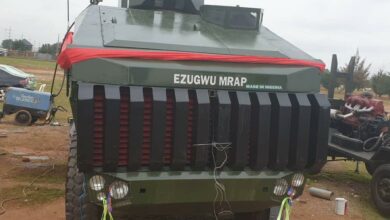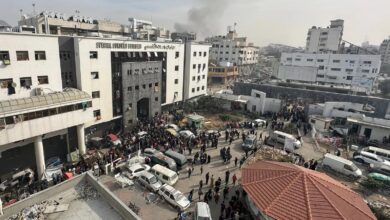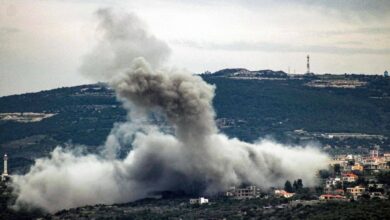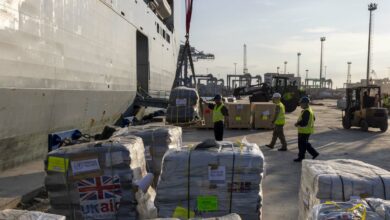Jihadists believed to be aligned to Islamic State have executed one of six aid workers abducted in northeast Nigeria’s Borno state in July, humanitarian group Action Against Hunger said on Wednesday, September 25.
The news of the execution comes a week after the Nigerian Army shut ACF offices in northeast Nigeria, accusing the Paris-based organization of “aiding Boko Haram Terrorists/Islamic State West Africa by supplying them food and drugs,” and on the same day that military shut down four field offices operated by another NGO, Mercy Corps.
“The armed group holding captive an employee of Action Against Hunger (ACF), two drivers and three health ministry personnel, have executed a hostage,” ACF said in a statement.
“Action Against Hunger condemns in the strongest terms this assassination and urgently calls for the release of the hostages,” it said, giving no more details on the identity of the victim.
The charity said it was “extremely concerned and is fully mobilized to ensure that the remaining hostages can be quickly and safely reunited with their families.”
In July, fighters believed to be Islamic State West Africa Province militants ambushed a small aid convoy on the road to Damasak near the border with Niger. One driver was killed and one ACF staff member, two other drivers and three health workers were abducted.
Several days later, a video that showed the six captives was released, although not through the centrally controlled ISIS channels. The only woman among them identified herself as an ACF employee and said they had been “caught by this army called the Caliphate” and pleaded for NGOs, religious organizations and the government to help secure their release.
On Wednesday, a new video was released – again not through usual ISIS channels – that showed the execution of a male aid worker, according to Ahmad Salkida, a Nigerian reporter and expert on the conflict in the country’s northeast.
Salkida attributed the video to ISWAP, reporting the group as saying “it took the action because ‘the government deceived them’ following months of what is now known as secret negotiations between a team of intermediaries and unnamed officials,” and that it threatened to execute the remaining captives.
The kidnapping was the latest to target aid workers in the conflict-hit region after the abduction and killing last year of two female International Committee of the Red Cross staff members, Hauwa Liman and Saifura Khorsa.
The ACF worker’s execution also comes just three days after ISIS propaganda agency Amaq released a video showing the execution of two men by ISWAP fighters. Amaq claimed the two were Nigerian Army soldiers who were captured in an ISWAP attack on a base in the Gajiram area of Borno state on September 5.
Mercy Corps second aid group shut down by Nigerian military
On September 18, the Nigerian Army closed ACF’s offices in Borno state capital Maiduguri and in Damaturu, capital of neighboring Yobe state, and later accused it of “aiding and abetting terrorists.”
In a release posted on Facebook the following evening, the Nigerian Army’s command in the northeast said Action Against Hunger “has been declared persona nan [sic] grata for aiding Boko Haram Terrorists/Islamic State West Africa by supplying them food and drugs” despite warnings from the military.
“The Command has obtained several credible intelligence [sic] indicating AAH as one of those NGOs operating in the NE that is notorious in supplying food and drugs to the criminals in the area,” said the release, which was signed by Colonel Ado Isa, the Deputy Director Army Public Relations for Operation Lafiya Dole, the military operation countering the insurgency in the northeast.
A second aid group, Mercy Corps, said Wednesday that it was suspending its operations in Borno and neighbouring Yobe States following the closure of four of its field offices by the Nigerian military.
“We have not yet received an official reason from the Nigerian authorities for the closure and we are seeking to work with them to resolve this as soon as possible,” Head of Media and Communications Amy Fairbairn said in statement emailed to The Defense Post.
“Mercy Corps believes in the work we have done in northeast Nigeria, and we hope to quickly resume our programs that bring much-needed relief to the people of Nigeria,” Fairburn said.
“Mercy Corps’ work in other areas of Nigeria continues uninterrupted,” Fairburn noted.
The statement added that since 2012, Mercy Corps has worked in the “most marginalized regions in Nigeria to deliver urgent, lifesaving assistance and promote development.”
“We partner with communities to help them recover and rebuild, while addressing the root causes of conflict, insecurity, and inequality. Our work directly impacts the lives of more than 500,000 people in Borno and Yobe states.”
Soldiers were camped at the entrance to the Mercy Corps’ office in Maiduguri, the capital of Borno State, AFP reported.
Army relations with NGOs and media deteriorating
Relations between the Nigerian Army and aid organizations in the region have been strained for years.
In December, the Nigerian Army briefly suspended United Nations children’s agency UNICEF from operating, claiming it was “training selected persons” as “spies” to support Boko Haram by sabotaging counter-terrorism and counter-insurgency efforts. The ban was lifted hours later.
In August 2017, soldiers conducted a search of a U.N. camp in Maiduguri, denounced by Amnesty International.
The army’s relations with the media have also become increasingly strained.
The Nigerian military seldom comments on the ongoing counter-insurgency operations, and tends to downplay the insurgents’ effectiveness, rarely acknowledging engagements and seemingly understating military casualties and equipment losses.
In one case, after ISWAP fighters in April attacked a Nigerian military base in Sabon Gari, between Damboa and near Biu, the Nigerian Army described reporting on the incident as “unsubstantiated” and “fake,” saying it was the work of “Boko Haram sympathizers.”
A month later on May 24, ISWAP fighters ambushed a convoy that was transporting civilians from Sabon Gari to Damboa. Media reported that between five and 25 Nigerian soldiers died in that attack, but again the Nigerian Army described those reports as “fake news” and denied there had been any attacks on military personnel in Borno state.
On September 13, an army press release said that Chief of Army Staff Lieutenant General Tukur Yusufu Buratai had warned that referring to Boko Haram, JAS or ISWAP by name “could amount to supporting or encouraging terrorism,” and that “giving prominence to the criminal activities of the terrorists group through sensational headlines and fake news in both electronic and print media could also amount to tacit support to terrorism which violates the Terrorism Prevention Act 2011.”
A decade of Islamist insurgency
The jihadist group known as Boko Haram began its bloody insurgency in northeastern Nigeria in 2009, but it has since spread into neighboring Niger, Chad and Cameroon, prompting a regional military response.
Boko Haram split into two factions in mid-2016. One, led by long-time leader Abubakar Shekau, is notorious for suicide bombings and indiscriminate killings of civilians. Shekau pledged allegiance to ISIS leader Abu Bakr Al-Baghdadi in March 2015, but ISIS central only gives formal backing to the other faction, which it calls Islamic State West Africa Province.
The ISWAP faction, which largely focuses on attacking military and government targets, was led by Abu Mus’ab Al-Barnawi, but in March, audio recordings revealed that ISIS appointed Abu Abdullah Idris bin Umar, also known as Ibn Umar al-Barnawi and Ba Idrisa, as leader. Despite releasing several videos featuring ISWAP since, ISIS has not yet made a public statement confirming the change.
On September 10, the United States added Ba Idrisa to its Specially Designated Global Terrorist list, saying that he was born in Maiduguri between 1989 and 1994. The listing did not specify which faction he belongs to.
The U.S. assesses that Boko Haram and ISWAP have been responsible for more than 35,000 deaths since 2011. More than two million people have been displaced, sparking a dire humanitarian crisis in the region.
Earlier this month, the International Committee of the Red Cross said that early 22,000 people, mostly children, are missing as a result of the insurgency in northeast Nigeria, the highest number of missing persons registered with the organization in any country. Some 60% of the total were minors at the time they went missing.
In July, a spokesperson for President Muhammadu Buhari again insisted that Boko Haram was defeated, blaming ongoing violence in the northeast on international jihadists exploiting porous borders with Sahel countries.
With reporting from AFP


